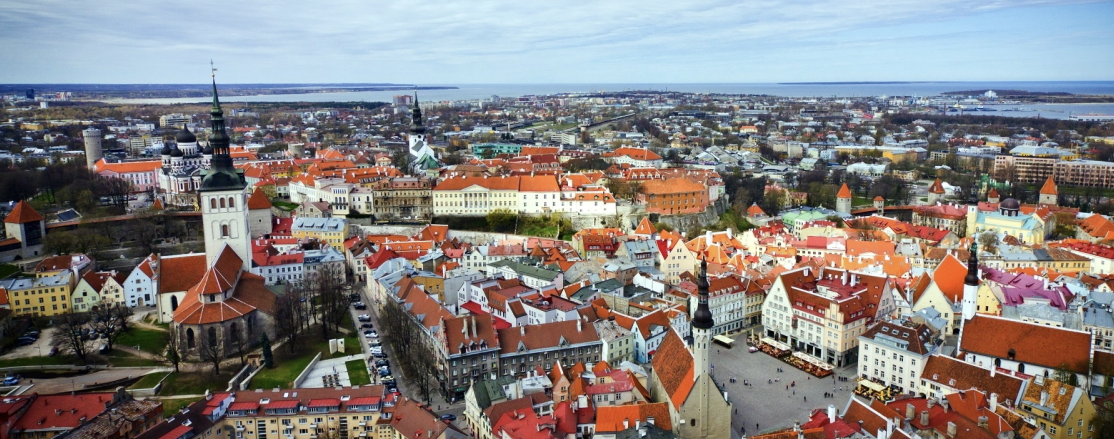Benjamin Franklin once said, “In this world, nothing is certain except death and taxes.” While death is indeed inevitable, taxes – specifically estate or inheritance taxes -don’t have to be.
A growing number of countries have abolished estate taxes altogether, offering a lifeline for high-net-worth individuals who want to preserve their wealth for future generations without government interference.
If you’ve worked hard to secure your financial legacy, finding a country that respects your right to pass on that wealth without imposing hefty taxes is crucial.
Below, we’ll explore 10 countries without inheritance tax, delving into what makes them attractive destinations for those seeking to protect their assets.
Australia
Australia abolished its inheritance tax in 1985, making it one of the earliest adopters of a no-death-tax policy.
This legislative decision was a significant shift away from the country’s traditionally strict tax policies. However, while there is no estate tax, inheritance in Australia is not entirely free of financial obligations.
While direct heirs won’t face estate taxes, inherited assets such as property may be subject to capital gains tax if they are sold.
For example, if you inherit a family home and later sell it, the government could impose a tax on the appreciation in value since the original purchase.
Additionally, Australian residents who inherit foreign assets could be subject to taxes in the country where the assets are located. This makes cross-border estate planning essential.
Despite these nuances, Australia remains a popular destination for those who want to avoid estate taxes, particularly for its stable economy, high quality of life, and strong legal protections for property rights.
New Zealand
New Zealand is another country that has completely eliminated estate taxes. Beneficiaries are not taxed on inherited assets, and the estate itself is only required to file a final tax return. However, there are some complexities to keep in mind:
While there is no estate tax, beneficiaries may face capital gains tax if they sell inherited assets. For example, selling an inherited investment property may trigger a tax on the gains accrued since the original purchase.
For those looking to relocate to New Zealand, gaining residency has become more expensive. Recent changes to immigration laws have increased the required investment from NZ$5 million to NZ$15 million (approximately US$8.8 million).
Overall, New Zealand’s tax-friendly policies, combined with its breathtaking landscapes and high standards of living, make it an attractive option for wealthy individuals looking to protect their legacy.
Canada
Canada does not impose an estate tax, making it an appealing destination for those looking to avoid the financial burdens of inheritance taxes. However, this doesn’t mean that inheritance is completely tax-free.
When someone passes away, the Canada Revenue Agency (CRA) treats the transfer of assets as a sale. This means that capital gains tax may apply to the appreciation in value of assets such as real estate or investments.

For many of the countries on this list, tax doesn’t apply to estate or inheritance as long as the assets aren’t sold by those who inherited them. Other taxes may still apply if you don’t have permanent residency status.
Assets transferred to a surviving spouse are generally exempt from capital gains tax, but other heirs may face significant tax obligations.
While Canada’s lack of a formal estate tax is a huge advantage, planning is essential to minimize capital gains taxes. The country’s strong economy, cultural ties to the United States, and high quality of life continue to attract wealthy individuals from around the world.
Hong Kong
Hong Kong abolished its inheritance tax in 2006. The Chinese territory doesn’t impose wealth, gift, or estate taxes, making it one of the most tax-friendly jurisdictions globally.
Even before the abolition of its inheritance tax, foreigners were often exempt from paying taxes on overseas estates. This exemption, combined with Hong Kong’s role as a global financial hub, makes it a top choice for international investors.
Becoming a resident in Hong Kong is relatively straightforward for business owners, but it’s worth noting that doing so could void some offshore tax benefits.
Additionally, Hong Kong has limited tax treaties, which could lead to higher taxes if you hold citizenship elsewhere.
Despite such considerations, Hong Kong’s strategic location as part of Greater China, robust financial system, and zero inheritance tax policy make it an attractive destination for those looking to protect their wealth.
Singapore
Singapore eliminated its estate tax in 2008, further enhancing its reputation as a low-tax financial hub.
While Singapore offers numerous tax advantages, becoming a resident has become increasingly difficult in recent years. The country now requires significant financial investments for residency, often amounting to several million dollars.
For those who manage to establish residency, Singapore offers a stable economic environment, world-class infrastructure, and efficient legal systems, ensuring that your wealth is protected and passed on seamlessly.
Singapore’s combination of economic stability, low taxes, and no inheritance tax makes it a top choice for high-net-worth individuals looking to secure their financial legacy.
Portugal
Portugal abolished its estate tax in 2004, making it one of the few European nations with no inheritance tax for immediate family members.
While spouses and children can inherit assets tax-free, a 10% stamp duty applies to assets passed on to non-immediate family members.
Portugal’s Golden Visa program has attracted many expatriates, offering residency and eventual citizenship to those who invest in the country. This has made Portugal a popular destination for retirees and investors alike.
With its sunny climate, affordable cost of living, and tax-friendly policies, Portugal is a top choice for those looking to enjoy a relaxed lifestyle while protecting their wealth.
Estonia
Estonia is a model for modern, tax-friendly jurisdictions. The country does not impose an estate tax, and its flat personal income tax rate of 20% makes it one of the most straightforward tax systems in Europe.

Establishing the residency or citizenship in a country with no estate tax is a key to ensure the legacy you’re passing on remains intact.
While there is no estate tax, gains from the sale of inherited property may be subject to income tax. However, exemptions apply for primary residences and holiday homes owned for more than two years.
Estonia’s e-residency program makes it easy for entrepreneurs and investors to establish a presence in the country, further enhancing its appeal as a tax-friendly destination.
Estonia’s progressive tax policies and lack of estate taxes make it an excellent choice for those looking to protect their wealth.
Sweden
Sweden abolished its estate tax in 2005, following a trend among Nordic countries to simplify their tax systems.
While there is no estate tax, Sweden has forced heirship laws, which require a portion of the estate to go to surviving children and spouses unless specific arrangements are made.
Despite its high cost of living and taxes on income, Sweden’s lack of estate taxes and strong legal protections make it an attractive option for preserving wealth.
Sweden’s high quality of life and progressive tax policies make it a top choice for those looking to secure their financial legacy.
Vanuatu
Moving back into the Asia-Pacific region, Vanuatu is a classic tax haven, offering an escape from not just estate taxes but also income and corporate taxes.
The country offers a straightforward path to residency or economic citizenship, making it an attractive option for those looking to minimize their tax obligations.
Vanuatu’s lack of taxes on personal income, corporate profits, or inheritances makes it a haven for those seeking to legally avoid estate taxes.
For those willing to relocate to a more isolated location, Vanuatu offers unparalleled tax benefits and a relaxed lifestyle.
Macau
Macau, often referred to as the “Vegas of Asia,” this Chinese territory isn’t just the world’s highest-grossing gambling hub but also a tax-friendly jurisdiction.
Macau abolished estate taxes in 2001, aligning its policies with mainland China.
Residents don’t have to worry about taxes on foreign-sourced income, gifts, capital gains, or inheritances. However, stamp duty may apply to real estate transfers, so careful planning is necessary when dealing with property assets.
Living in Macau also comes with significant tax advantages which makes it a very attractive option for those looking to protect their wealth while enjoying a dynamic and cosmopolitan lifestyle.
FAQs: Countries with No Death Tax
What is a "No Death Tax" Policy, and How Does it Benefit Individuals?
A "no death tax" policy refers to the absence of estate or inheritance taxes, allowing individuals to pass on their wealth to heirs without significant government deductions.
This approach is particularly beneficial for high-net-worth individuals who want to preserve their financial legacy for future generations without burdensome taxation.
Which Countries Have Abolished Estate Tax, and Why are They Attractive for Investors?
Notable places that have abolished estate tax include Australia, New Zealand, Hong Kong, Singapore, Sweden, Vanuatu, and Macau.
These jurisdictions attract investors due to their tax-friendly policies, stable economies, high quality of life, and robust legal protections for property and wealth.
What Makes Hong Kong and Singapore Particularly Appealing for Wealth Preservation?
Both Hong Kong and Singapore are global financial hubs with no estate, gift, or wealth taxes, making them especially attractive for wealth preservation. Hong Kong abolished its inheritance tax in 2006, and Singapore followed suit in 2008.
These cities offer stable economic environments, efficient legal systems, and strategic geographic locations. Gaining residency in Singapore has become increasingly challenging due to high investment requirements though.







